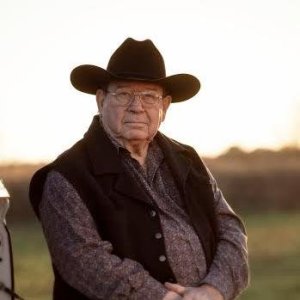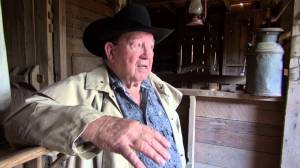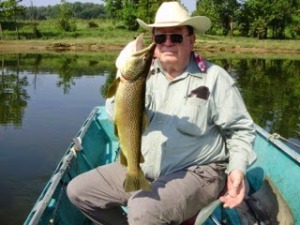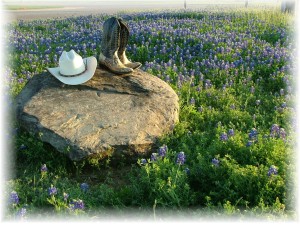I’ve been quiet over the holidays for a couple of reasons. Partly, because it was the holidays. But mostly… well, you’ll see.
About ten years ago, I walked into a writers group in Fayetteville, Arkansas. I was ready to get  serious about the writing, ready to improve my craft. I can’t remember now how I heard about this particular group, at least not this time. I’d heard of it once before from a friend, but I guess I wasn’t ready for it yet, wasn’t ready to let strangers see my work.
serious about the writing, ready to improve my craft. I can’t remember now how I heard about this particular group, at least not this time. I’d heard of it once before from a friend, but I guess I wasn’t ready for it yet, wasn’t ready to let strangers see my work.
But by then I was. I’d worked on a space opera, had written quite a bit of it, and wanted to see what others thought. I was arrogant and timid all at the same time. Part of me thought I was gonna knock em dead—that audacious part that every writer has to possess to have the courage to put his words out there for somebody. But the majority of me just hoped I would be up to snuff.
I knew no one there. I sat at one end of the group of tables in a room they used in the Good Shepherd Lutheran Church. A member of that church was also a member of the workshop, and that’s how they had access to this building.
I had no idea how fortunate I was to happen on this group. The two who ran it, Dusty Richards and Velda Brotherton, had been published in New York, Velda years ago under a pen name just before the bottom fell out, and Dusty under his own name, writing westerns.
 I’d known of Dusty since I was a teenager. I’d worked an FFA rodeo once in I think it was tenth grade, and Dusty was the announcer. He was a local celebrity even then, appearing on a regional morning show, doing the farm report. He’d been a biology teacher at my alma mater, Huntsville High School, as well as a field man for Tyson, traveling around to the chicken farms, helping them raise better chickens.
I’d known of Dusty since I was a teenager. I’d worked an FFA rodeo once in I think it was tenth grade, and Dusty was the announcer. He was a local celebrity even then, appearing on a regional morning show, doing the farm report. He’d been a biology teacher at my alma mater, Huntsville High School, as well as a field man for Tyson, traveling around to the chicken farms, helping them raise better chickens.
Over the next decade—or close to it—I stayed faithful in that writers group, and I came to know Dusty more. He became a mentor, a friend, a father figure, especially after my own father died. Time after time, I watched him encourage new writers, and he always told them the same thing: It’s good. There are problems, but don’t worry about that. Just write. Get the story out. You can fix it later.
There were times when I wondered how he could do that, because I thought some of them were horrible writers. But Dusty never said that, never discouraged a single one of them, regardless of their quality. I think perhaps he could see something the rest of us—or at least that I—couldn’t see: the potential of every writer to become more than they were when they walked into the group.
I watched a lot of writers come and go, and Dusty never failed to encourage them. He had a heart, as my boss Casey Cowan says, bigger than the western skies he wrote about. He was generous to a fault, and optimistic like few people I’ve known. To once again steal from Casey, Dusty woke up every day thinking of it as a new opportunity.
On December 19, Dusty and his wife Pat were on their way home from a lunch meeting with Casey and the Oghma business manager, Venessa Cerasale, when he apparently passed out and left the road. He crossed oncoming traffic—luckily not hitting anyone else, and, in one of life’s ironies, the Ranch Boss—as we affectionately called him—crashed through the fence of a horse pen.
I’ll spare you the medical details, but suffice it to say he and Pat lingered a time longer, and even looked to be improving briefly.
Then came the news that Pat had died.
To say we were shocked is an understatement. Pat was Dusty’s rock. As loud and boisterous as  he could be, she was the only one who could control him, the only one who could rein him in. She was a quiet influence in his life, his bride of fifty-six years. While he was the center of attention, Pat would sit off to the side, reading her romance novels, the only kind I ever saw in her hands. Bodice rippers, as they’re known. She loved them, but I never really heard her talk about them.
he could be, she was the only one who could control him, the only one who could rein him in. She was a quiet influence in his life, his bride of fifty-six years. While he was the center of attention, Pat would sit off to the side, reading her romance novels, the only kind I ever saw in her hands. Bodice rippers, as they’re known. She loved them, but I never really heard her talk about them.
Pat died January 10th. Dusty followed her on the 18th. Immediately after the wreck, he was in a coma, and once he woke up, he sometimes knew himself, sometimes didn’t. But, as another friend of mine said, I believe his spirit knew Pat was gone. Two days later, he was moved into hospice care, and we all knew it was a matter of time.
That’s Dusty’s story. But there’s more.
As I mentioned above, Dusty became so much more than that guy at the writers group for me. I had the honor of riding to Cheyenne, Wyoming in June of 2016 with him for the annual Western Writers of American convention. I drove him to hospital when Pat had to go a couple days before we were due to leave. She stayed Friday night, Saturday, and into Sunday morning. We left Cheyenne, made it to Hayes, Kansas, where she had to go back in the hospital. This time, they found the real problem, and she was able to continue home the next day.
But while we sat in the waiting room at Cheyenne, Dusty leaned over and said, “Gil, I hear you’re having money problems.” I was. I worked part-time then, twenty-four hours a week at nine dollars an hour, two twelve-hour shifts on the weekend. I was effectively giving up an entire week’s paycheck to go to the conference, but was determined I wouldn’t miss it.
I explained this to Dusty. He pulled out his wallet, handed me one hundred dollars.
 “You take this,” he said. “Use it for whatever you need. Don’t worry about paying me back for it.”
“You take this,” he said. “Use it for whatever you need. Don’t worry about paying me back for it.”
And then, not two months later, he had me meet him at Best Buy and bought me a laptop when he saw I had no way to write if I wasn’t at home. On the way out of the store, he said, “Me and Pat talked about it, and we decided you needed to have that to help you write.”
I tell this as a way to show you how generous, how giving, this man was. He gave, and didn’t ask for anything in return.
After the accident, when we posted news of the wreck on the Oghma Facebook page, I happened to go there to look at another post and saw that one. Over seven hundred comments, and I’m told there were thousands of views. I’d known Dusty was a celebrity, but I had no idea he was that well known. I scrolled through the posts, and comment after comment had to do with how generous he and Pat were, how they’d helped this person or that one in some way or another. One even posted that her family wouldn’t have their farm if not for Dusty and Pat.
It’s been a hard few weeks. I think the conferences will be a lot different without Dusty and his loud laugh. There’ll be something missing from them. But his legacy will live on. We intend to see to that, finding a way to give back to this man who gave so much to so many, a way to keep his generous legacy going.
In the spirit of that audaciousness I first exhibited by going to that writing group, I’m going to do my best to step into Dusty’s shoes and encourage new writers, do my best to help them set their feet on the path he helped so many travel, including me.
my best to step into Dusty’s shoes and encourage new writers, do my best to help them set their feet on the path he helped so many travel, including me.
Knowing Dusty Richards was an honor, one I didn’t fully realize until this happened. I don’t know if I can ever approach his generosity, his optimism, but I’ll do my best and try, because he had faith in me, believed I was a good writer. I will cherish every memory I have of him, and every time I help a writer, it’ll be in his name, for his legacy. Not mine.
The Ranch Boss is gone. A legend has passed from this earth, a legend I had the distinct honor to know. I believe we all go to whatever we envision to be heaven, and I’m sure Dusty is sitting around a prairie campfire somewhere, spinning tales as he always did, conversing with his hero Zane Grey, and I’m sure people like Luke Short, Max Brand, Louis L’Amour, and who knows who else, are sitting around that campfire, each taking his turn, telling tales to one another the likes of which we’ll never know. At least not until we join them.
Adios, my friend. You had a long ride, and a good one. I’ll miss you, and so will so many more. My heart is heavy, even though I know you’d want me to smile. The pain is sharp now, but it’ll fade, and I’ll be left with so many good memories.
And I’ll tell the stories like you did, passing them along to a new generation of writers, so they’ll know what kind of man you were.
My friend. My mentor. My second father.
 Hold a spot for me at that campfire. I want to hear more stories.
Hold a spot for me at that campfire. I want to hear more stories.
Later,
Gil
 A little over a week ago, I went to see The Revenant, the fictionalized version of the Hugh Glass story, starring Leonardo Dicaprio, and I have to say it was a great movie. Unlike most movies today, they eschewed the use of CGI, even when filming the bear attack that is the pivotal event of the story. And they filmed only in natural light, so the scenery is spectacular, and you can practically feel the cold seeping into your bones. If you haven’t seen it, do yourself a favor and correct that discrepancy.
A little over a week ago, I went to see The Revenant, the fictionalized version of the Hugh Glass story, starring Leonardo Dicaprio, and I have to say it was a great movie. Unlike most movies today, they eschewed the use of CGI, even when filming the bear attack that is the pivotal event of the story. And they filmed only in natural light, so the scenery is spectacular, and you can practically feel the cold seeping into your bones. If you haven’t seen it, do yourself a favor and correct that discrepancy. the statistics, actually not as likely as urban legend would have us believe. The period we call the Wild West didn’t last very long, in fact. The vast majority who traveled west were settlers, men with families in tow who were seeking a better life, something they simply couldn’t find in the stratified east. They were chasing a dream of having their own land. They formed towns and quickly hired law enforcement officers of various types. The Texas Rangers patrolled that huge area under the motto One riot, one Ranger. The US Marshals were also present throughout this period. And that doesn’t even include the town sheriffs and marshals populating the landscape.
the statistics, actually not as likely as urban legend would have us believe. The period we call the Wild West didn’t last very long, in fact. The vast majority who traveled west were settlers, men with families in tow who were seeking a better life, something they simply couldn’t find in the stratified east. They were chasing a dream of having their own land. They formed towns and quickly hired law enforcement officers of various types. The Texas Rangers patrolled that huge area under the motto One riot, one Ranger. The US Marshals were also present throughout this period. And that doesn’t even include the town sheriffs and marshals populating the landscape. The 1960s saw a different type of movie come along, though, the fabled spaghetti western. Made with low budgets, they generally featured up and coming actors such as Clint Eastwood (who has also starred in more classic western movies), strident music, and lots of close-ups of actors making various noises in reaction to horrible deeds and a more violent, less idealized version of the west.
The 1960s saw a different type of movie come along, though, the fabled spaghetti western. Made with low budgets, they generally featured up and coming actors such as Clint Eastwood (who has also starred in more classic western movies), strident music, and lots of close-ups of actors making various noises in reaction to horrible deeds and a more violent, less idealized version of the west.